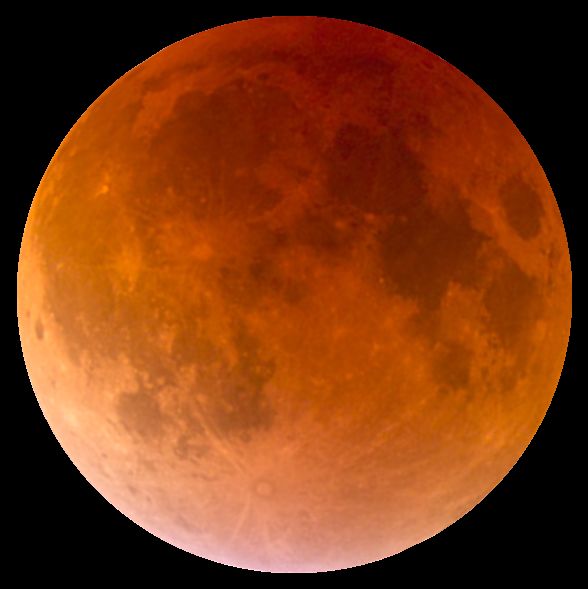Stanford - How Emerging Technologies are Improving the Pediatric Patient Experience
Dear Luke, Maria and Molly,
Thank you for your talk yesterday. I Tweeted about this here:
Thanks to speakers @Luke_F_Wilson, Maria Menéndez, MD, & Molly Pearson, CCLS., @StanfordChild CHARIOT Program at Lucile Packard Children’s for sharing their experiences with VR: "How Emerging Technologies are Improving the Pediatric Patient Experience" https://engineering.stanford.edu/events/how-emerging-technologies-are-improving-pediatric-patient-experience ~
Thanks to speakers @Luke_F_Wilson, Maria Menéndez, MD, & Molly Pearson, CCLS., @StanfordChild CHARIOT Program at Lucile Packard Children’s for sharing their experiences with VR: "How Emerging Technologies are Improving the Pediatric Patient Experience" https://t.co/ZDY6Rsd7ge ~— WorldUnivandSch (@WorldUnivAndSch) January 23, 2019
- https://twitter.com/WorldUnivAndSch/status/1088107431052304384
- https://twitter.com/scottmacleod/status/1088107266144755712
You'll find here also the two brainwave headsets I mentioned, Tan Le's, and Andrew Junker's Brainfingers - https://scott-macleod.blogspot.com/2013/01/flower-coral-brainfingers-hands-free.html - which could become an addition to your toolkit for VR. (I know Andrew Junker, and have tried Brainfingers in around 2004). With brainfingers, brainstorming-wise, I think that that the end user has to be able to relax (where astrophysicist Stephen Hawking couldn't due to his ALS) to use Brainfingers - as a kind of feedback - to be able to then with agency pick letters from a computer screen without words or gestures offers amazing research potentials. And with Tan Le's brainwave headset, I also think that the agency of the headset wearer to move a digital cube, so VR A) near and close, B) rotate it, and C) make it disappear, offers similar amazing research potential for Improving the Pediatric Patient Experience, and studying too the brain / mind, with information technologies.
As we discussed afterward, Luke, I'm also interested in creating a Realistic Virtual Earth (for everything actually) which could become a remarkable library of STEM data assets with which to build further VR and Games for improving the pediatric patient experience. Conceptually, this would be like Google Street View with time slider / Maps / Earth / at the cellular and atomic levels too, with / TensorFlow / Google Poly a library of virtual objects and Google's ARCore (for AR) - and importantly, potentially with Stanford & Duke Medicine's / Google's Project Baseline, and with eventual realistic avatar bots, and which would be group build-able (thinking Second Life now into Sansar / OpenSim), and eventually too for tele-robotic surgery (brainstorming-wise). Very nice to meet and talk with you in person as well.
Are you in communication with the Stanford Medicine Center for Digital Health? I appreciated a talk they gave last week that included a focus on measurement / an experimental approach to studying VR -
Thank you to our workshop speakers, Dr. Lauren Schneider and Dr. Anne Dubin, for sharing their experiences with Project Brave Heart and the potential uses of virtual reality in healthcare— Stanford CDH (@StanfordCDH) January 22, 2019
Stanford affiliates will be able to view the talk soon at https://t.co/eHxKeqZNtl pic.twitter.com/DKA1F9clAC
https://twitter.com/StanfordCDH/status/1087854988976631810. I blogged about this here - http://scott-macleod.blogspot.com/2019/01/prunus-mume-stanford-medicine-vr.html - where you'll also find how World Univ & Sch is beginning to collaborate with the Stanford CDH. Am an active blogger about many related VR questions, as well as 'medicine' and 'Medical School' and 'Stanford' (see these blog 'labels') as you'll see, and, Luke and Maria, you'll find in this blog too a little about the Scratch 3.0 drag and drop programming language, re making Scratch & other Sprites / VR, and new blocks for language translation including re Google Translate.
Maria (who's email address I couldn't find) and All, CC-4 MIT OCW-centric World University and School (of which I'm the founder and head) seeks to develop in all ~200 countries' official and main languages, with Spanish (and Chinese) as our pilot languages. Could you please forward this email to Maria?
FYI, World University and School seeks to generate online Medical Schools in each of all ~200 countries' official / main languages from a Template like this - http://worlduniversity.wikia.com/wiki/World_University_Medical_School - with CC-4 MIT OCW in 5 languages and CC Yale OYC course ware, but MIT and Yale don't have any Medicine OpenCourseWare for online medical degrees (newly defined potentially), - so potentially with Stanford's CDH itself (and possibly building on the NEJM's continuing medical education CME modules). Linked to each of these online medical schools would be an online teaching hospital, e.g. - http://worlduniversity.wikia.com/wiki/Hospital - with Project Baseline into avatar bots (and even for thinking through tele-robotic surgery) and for clinical care.
Thanks for your inspiring and interesting talk. And looking forward to communicating about all of this further with time.
Regards, Scott
Scott MacLeod - https://twitter.com/scottmacleod
World Univ and Sch Twitter - http://twitter.com/WorldUnivandSch
Languages - World Univ - http://twitter.com/sgkmacleod
WUaS Press - https://twitter.com/WUaSPress
“Naked Harbin Ethnography” book (in Academic Press at WUaS) - http://twitter.com/HarbinBook
(OpenBand (Berkeley) - https://twitter.com/TheOpenBand ) )
- https://events.stanford.edu/events/818/81886/
- https://engineering.stanford.edu/events/how-emerging-technologies-are-improving-pediatric-patient-experience
- https://arts.stanford.edu/event/81886/
https://www.linkedin.com/in/mar%C3%ADa-men%C3%A9ndez-60167ab1/
https://www.linkedin.com/in/lukefwilson/
https://www.linkedin.com/in/molly-pearson-ccls-cfle-07a56b8a/
https://chariot.stanford.edu/about/
From LinkedIn:
Hi Molly, Thanks for your great Stanford VR presentation. I asked the question about brainwave headsets. With very best wishes, Scott (worlduniversityandschool.org, See, too https://wiki.worlduniversityandschool.org/wiki/Brain_Computer_Interface, and /Virtual_Worlds in /Subjects +, ... scottmacleod.com ~
* * *
Sunday, January 20, 2019
There's a live streaming of this lunar eclipse if cloudy skies https://www.timeanddate.com/live/ See too: https://wiki.worlduniversityandschool.org/wiki/Earth,_Atmospheric,_and_Planetary_Sciences … @WorldUnivAndSch Seeking to be able to hop into a #RealisticVirtualUniverse eventually (think Google StreetView with TIME SLIDER / Maps / Earth with TensorFlow)
There's a live streaming of this lunar eclipse if— Open Band (Berkeley) (@TheOpenBand) January 21, 2019
cloudy skies https://t.co/fXDPUnQ2vc See too: https://t.co/FxlsyOYP4K @WorldUnivAndSch Seeking to be able to hop into a #RealisticVirtualUniverse eventually (think Google StreetView with TIME SLIDER / Maps / Earth with TensorFlow) https://t.co/8jl3SuTWiE
https://twitter.com/TheOpenBand/status/1087209214517207040
--
- Scott MacLeod - Founder, President and Professor
- World University and School
- http://worlduniversityandschool.org
- 415 480 4577
- http://scottmacleod.com
- CC World University and School - like CC Wikipedia with best STEM-centric CC OpenCourseWare - incorporated as a nonprofit university and school in California, and is a U.S. 501 (c) (3) tax-exempt educational organization.
*
...
_(43696968392)_(cropped).jpg)






No comments:
Post a Comment